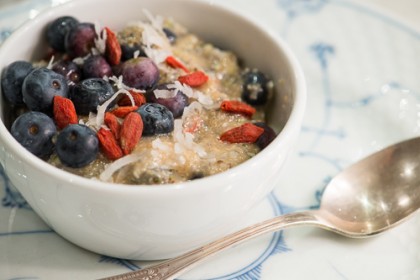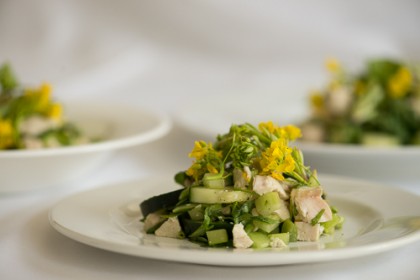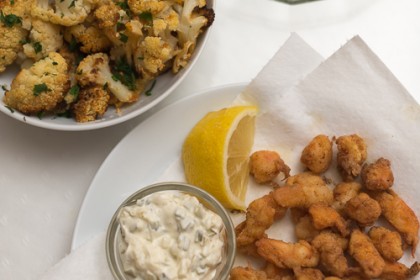 Yeast exists in everyone’s body, but under the right conditions it can proliferate and take over. Candida Albicans is both a yeast and a fungus and it is the microorganism that we are talking about when we are talking about a “yeast problem.” Yeast exists in everyone’s intestinal tract and in small amounts it is harmless. But when it takes over it can cause yeast infections, food allergies, skin rashes and allergies to mold as well as behavioral problems and hyperactivity. Yeast was a big part of my son’s problems. But we dealt with it early, thanks to Dr. Morton Teich, who I refer to as “The Yeast Doctor” because his specialty seems to be dealing with this medical problem that is overlooked and dismissed by many other mainstream doctor
Yeast exists in everyone’s body, but under the right conditions it can proliferate and take over. Candida Albicans is both a yeast and a fungus and it is the microorganism that we are talking about when we are talking about a “yeast problem.” Yeast exists in everyone’s intestinal tract and in small amounts it is harmless. But when it takes over it can cause yeast infections, food allergies, skin rashes and allergies to mold as well as behavioral problems and hyperactivity. Yeast was a big part of my son’s problems. But we dealt with it early, thanks to Dr. Morton Teich, who I refer to as “The Yeast Doctor” because his specialty seems to be dealing with this medical problem that is overlooked and dismissed by many other mainstream doctorThere are many ways that a yeast problem can develop. In people who have celiac, the villi which produce the enzymes to break down the food are damaged. Yeast can use the undigested food as a food source. Yeast grows 200x more in the presence of sugar. So a diet that includes a lot of highly refined sugar and carbohydrates can also lead to a yeast overgrowth. Often, gluten free processed foods are loaded with sugar, which feeds the yeast. According to Dr. Teich, yeast doesn’t grow in agave, so it is a better choice to use as a sweetener.
My son’s yeast overgrowth presented as hyperactivity, unusual behavior, a rash on his face, and an itchy diaper rash. When I gave him Nystatin, prescribed by Dr. Teich, his crazy behavior and rash got better. But it was only when I really made a vigilant effort to remove every little bit of sugar from his diet, that he got better.
Several months ago, a dermatologist I consulted about the rash on his face said it was “eczema”. The physician said they didn’t know what caused eczema and for half of the people it went away and half of the people it was a lifelong problem. Then he took out his prescription pad and wrote a prescription for a steroid cream. I was pretty surprised that he didn’t have a more specific name for the rash. Eczema seems so vague and too general to suggest any cause or cure. But I followed his advice just to see where it would lead me. The cream helped when I used it but as soon as I would stop the rash would return.
I started treating my son’s yeast overgrowth when his calm personality disappeared and he became unusually mean and aggressive after eating a slice of yeasty gluten free sourdough bread. Several days later I gave him some Nystatin we had around from last summer and his aggression disappeared and he sat down and ate his breakfast. I saw his behavior go up and down over the months we treated him with medication that eradicates yeast. Once school ended and the parties were over, I got super serious and eliminated every bit of sugar from his diet and
continued with a small dosage of Nystatin. Magically, his rash disappeared and his behavior settled.
It’s not science, but that is our gluten free families experience of treating yeast.
Here are some tips for eliminating yeast: 1)Eliminate sugar. 2) Use probiotics 3) Use enzymes to break down the food so it doesn’t become food for the yeast 4) See a doctor who understands the chronic problems associated with yeast overgrowth.
Here are some good links to more information:




Shalini - Great article! Thanks.
Betsy - We have been trying to deal with this for quite a while. My biggest problem is getting the sugar out. Do you use agave instead or are you completely off all sweeteners?
Karin - I am so glad to know others are trying to beat yeast overgrowth while experiencing gluten intolerance/Celiac! It feels like a really tough uphill battle once the yeast go into the fungal state. Getting the sugar out is not easy, especially for a child where sweets play such a part of what is considered an "enjoyable childhood." Yet, it is the only way I have seen improvement in myself. I have been reading a lot about this and a three-pronged "attack" is what seems to work: kill the yeast, replace the good bacteria through probiotics, and heal the immune system & digestive systems. There are a lot of methods for doing the above, but all three need to work in tandem to really beat the yeast, something I am still working on after two years of having chronic yeast issues, and after six months of a gluten-free diet and also keeping out yeasts and sugars as much as I possibly can. I have tried agave nectar and not only do I have the yeast problem, but I think I have a secondary issue with a possible sugar intolerance, and it does not work for me at all. With my yeast problem, to see improvement, I have to completely eliminate all sugars, molds and yeasts in any form (so cutting out even gluten-free tamari to flavor stuff, cheeses, most vinegars, except apple cider, etc.), and also restrict my carb intake to very low levels. I only see great improvement when I eat only some meat and green veggies, especially ones that inhibit yeast. It sucks, lol. But if I want to have no symptoms, until my immune system can get the upper hand, this is what I have to do to achieve a symptom-free existence.
Anonymous - I'm really glad Dr Teich helped your son. He is a wonderful dr, & has helped me alot since I was young. I was able to control my yeast problem (never really fully getting rid of it though since I have hypothyroidism, which he also treats & is extremely knowledgeable about. More so then all the other MD's I've been too). I've been on a very strict candida diet since I was 13 (no fruit, wheat, yeast, sugars or any kind, etc). I am currently 27, & still struggling with it (you can see the thrush in my mouth still). I also tried multiple times medications as well. Recently though, I was diagnosed with parasites which is probably making my immune system weak & unable to fully eliminate yeast from my body. Good thing parasites hate the candida diet too (maybe we should all be on this diet, so help with all medical problems?). I'm hoping that once I get rid of my parasites, I can finally get rid of my yeast too. Either way, I am extremely grateful for finding Dr Teich, & teaching me how to eat at such an early age in my life for better health.